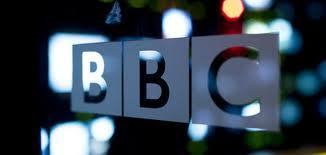Bias at the BBC is Just Responsible Journalism
 I read a piece in The Register today about a court case underway in the UK between some old Welsh bloke and the BBC. He’s suing them because he wants to know who was at an internal BBC meeting, held six years ago, about climate change. I don’t care too much about that. Even old Welsh blokes are entitled to their opinions and, Lord love ‘em, they’re even entitled to waste the British taxpayer’s time and money pursuing stupid court cases if they so wish. What upset me was the tone of the piece in The Register, which seems to take the side of the litigant in asserting that the BBC held a secret meeting where it decided to “abandon partiality” in climate change reporting.
I read a piece in The Register today about a court case underway in the UK between some old Welsh bloke and the BBC. He’s suing them because he wants to know who was at an internal BBC meeting, held six years ago, about climate change. I don’t care too much about that. Even old Welsh blokes are entitled to their opinions and, Lord love ‘em, they’re even entitled to waste the British taxpayer’s time and money pursuing stupid court cases if they so wish. What upset me was the tone of the piece in The Register, which seems to take the side of the litigant in asserting that the BBC held a secret meeting where it decided to “abandon partiality” in climate change reporting.
Much as I usually enjoy The Register, this particular piece seems rather biased and quite misleading, I’m afraid. The BBC did not choose to “abandon impartiality” on climate change but took the decision to accept the overwhelming scientific consensus on the subject and not present a spurious impartiality by offering extremist minority views to make reports look “balanced”. Every time a report is made on evolution, we don’t expect to see a crank Muslim or Christian fundamentalist quoted as saying it’s all rubbish. Every time we hear about a deep space mission, we don’t expect to hear from a conspiracy theorist to tell us it’s all a fraud. Why then should we expect every item on climate change to be “balanced” by a crank denialist who doesn’t “believe” in the science?
Instead of implying the BBC is at fault for “abandoning impartiality” the author should be praising the BBC for responsibility and accuracy in its reporting of the true state of the climate “debate”. That is, there is no debate. 98% of climate scientists are in perfect agreement that people are causing climate change – a level of agreement that would be the envy of many other scientific fields.
If other major news organisations had adopted the same responsible attitude to climate change, we would have seen far fewer cranks being given airtime and column inches and far better decision-making from our politicians. Some news organisations have shamelessly leapt on the spurious “impartiality” of presenting views contrary to the scientific consensus – however flawed or ill-informed – so as to further their own agenda of attempting to prevent government action (particularly new legislation) on the matter.
I say we should all be congratulating the BBC on an unusually principled stand for good reporting in the teeth of powerful opposition.



